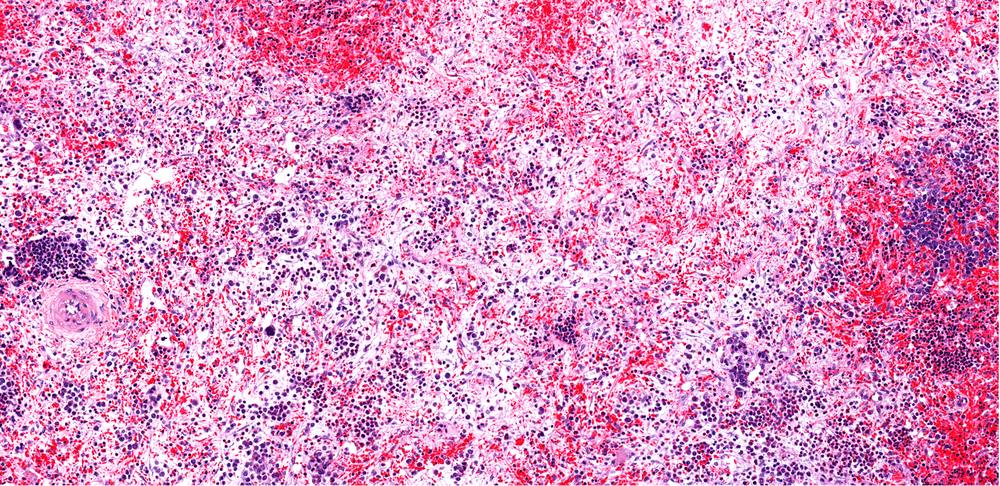-
Cancer
International research team identifies genetic-based model for predicting outcomes in primary Myelofibrosis

ATLANTA – A group of investigators from Mayo Clinic and multiple academic research centers in Italy have identified a genetic model for predicting outcomes in patients with primary myelofibrosis who are 70 years or younger and candidates for stem cell transplant to treat their disease. The group’s findings were presented today at the 59th American Society of Hematology annual meeting in Atlanta by lead authors Alessandro Vannucchi, M.D. from the University of Florence and Ayalew Tefferi, M.D., a hematologist at Mayo Clinic.
“Myelofibrosis is a rare type of chronic leukemia that disrupts the body's normal production of blood cells,” says Dr. Tefferi. “Prior to this study, the most comprehensive predictive model for outcomes in myelofibrosis, utilized mostly clinical variables, such as age, hemoglobin level, symptoms, white blood cell count and the percentage of immature cells in the peripheral blood.”
Dr. Tefferi says he and his colleagues incorporated new genetic tests in the model for gene mutations including JAK2, CALR, and MPL, which are known to drive myelofibrosis. He says the new model also tests for the presence or absence of high-risk mutations such as ASXL1 and SRSF2. “Our model is also unique in that we developed it for patients who are age 70 years or younger who may still be candidates for a stem cell transplant to treat their disease,” Dr. Tefferi says.
Researchers studied 805 patients with primary myelofibrosis who were 70 years of age or younger. Patients were recruited from multiple centers in Italy and from Mayo Clinic in Minnesota. The Italian and Minnesota groups formed two independent learning and validation cohorts. “We were surprised by how similar the predictive models performed in two completely separate patient databases,” Dr. Tefferi says.
Dr. Tefferi says that genetic information is increasingly being used as a prognostic biomarker in patients with primary myelofibrosis and he anticipates the potential use of such an approach along with relevant clinical, cytogenetic and mutational data for other hematologic and non-hematologic cancers.
###
About Mayo Clinic Cancer Center
As a leading institution funded by the National Cancer Institute, Mayo Clinic Cancer Center conducts basic, clinical and population science research, translating discoveries into improved methods for prevention, diagnosis, prognosis and therapy. For information on cancer clinical trials, call the Clinical Trial Referral Office at 1-855-776-0015 (toll-free).
About Mayo Clinic
Mayo Clinic is a nonprofit organization committed to clinical practice, education and research, providing expert, comprehensive care to everyone who needs healing. For more information, visit mayoclinic.org/about-mayo-clinic or newsnetwork.mayoclinic.org.
MEDIA CONTACT
Joe Dangor, Mayo Clinic Public Affairs, 507-284-5005, newsbureau@mayo.edu







